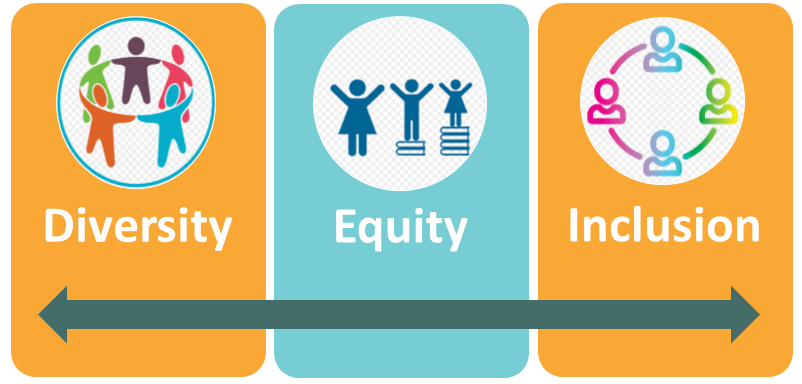Have you noticed how often the term DEI gets mentioned these days? You’re not alone if you’re wondering, “What exactly is the DEI meaning everyone’s talking about?” Don’t worry—let’s break it all down and explore why these three letters are becoming such a big deal in workplaces and beyond. So, sit tight as we dive into the world of diversity, equity, and inclusion.
The Foundation of DEI: More Than Just a Trend
First things first, let’s get clear on the basics. DEI—short for diversity, equity, and inclusion—is about more than being politically correct or ticking a box. It’s about creating environments where everyone, no matter their background or experience, feels valued and supported. DEI isn’t just a workplace initiative; it’s a mindset shift that changes how we engage with people on a human level.
What Does Diversity Mean?
When people talk about diversity, they often think of race or gender, but it goes beyond that. Diversity covers differences in age, socioeconomic status, education, cultural background, and even thought processes. Imagine a puzzle—each piece is unique, but together they form a complete picture. That’s what diversity does for teams and communities; it brings together different “pieces” that make everything stronger.
Equity vs. Equality: Why the Difference Matters
It’s easy to confuse equity with equality, but they’re not quite the same. Equality means giving everyone the same resources, while equity means recognizing that some people might need a little extra help to have the same opportunities. Picture a race where some runners have hurdles in their lanes. Equity means leveling the playing field by removing those hurdles so everyone has an equal chance of success.
Inclusion: It’s Not Just About Being There
Inclusion is often the last part of the DEI puzzle, but it’s just as important. Being in a room full of people doesn’t automatically mean you feel included. Think of inclusion as making sure everyone not only gets an invite to the table but also has a voice that’s heard and respected. It’s about creating spaces where people from diverse backgrounds feel comfortable being their authentic selves.
The Growing Importance of DEI in the Workplace
So, why should companies care about DEI meaning? Well, workplaces that prioritize diversity, equity, and inclusion have been proven to perform better. A diverse team brings new perspectives, innovative ideas, and creative problem-solving skills. When equity is in place, everyone can achieve their best, and when inclusion is fostered, employee engagement and morale skyrocket. It’s a win-win for both employees and the organization.
Common Misunderstandings About DEI
There’s no doubt that DEI is a hot topic, but with its rise in popularity comes a lot of misconceptions. Some people believe DEI is just about hiring quotas or making the workplace “look” diverse. But DEI explained properly means recognizing that it’s not just about representation. It’s about creating a culture where everyone—regardless of their differences—feels valued and can thrive.
Barriers to Implementing DEI
As much as DEI sounds great on paper, it’s not always easy to implement. Organizations face barriers like unconscious bias, resistance to change, and lack of leadership support. The journey towards creating a truly inclusive workplace requires a long-term commitment. Leaders must be willing to challenge outdated practices and invest in policies that promote real equity and diversity.
Making DEI a Priority: How to Start
If you’re wondering how to start embracing DEI meaning in your organization or community, there are some simple steps. First, educate yourself and your team on the importance of DEI. Offer training on unconscious bias, foster open conversations, and make a clear commitment to equity. Set measurable goals for diversity and inclusion, and always keep yourself accountable. Most importantly, be patient—real change doesn’t happen overnight.
How Leadership Drives DEI Success
Successful DEI initiatives often start at the top. Leadership plays a critical role in making sure diversity, equity, and inclusion are not just empty words. Leaders must model inclusive behavior, advocate for fairness, and ensure that their teams have the resources needed to promote equity and inclusion. When leaders show that they take DEI seriously, it trickles down and becomes part of the company culture.
The Broader Impact of DEI Outside the Workplace
DEI doesn’t just stop at the office door. Communities, schools, and even governments are adopting DEI explained principles to create more equitable societies. Think about education—when schools practice inclusion and equity, students from all backgrounds can access the same opportunities for success. The ripple effect of DEI touches every aspect of society, from healthcare to housing and beyond.
What’s Next for DEI?
The future of diversity equity inclusion is both promising and challenging. As more organizations and communities adopt DEI practices, the focus is shifting from just talk to real, actionable change. The rise of remote work, for example, has opened new doors for inclusivity, but it’s also presented new challenges in making sure that everyone has equal access to resources and opportunities. Moving forward, DEI will need to keep evolving to meet the demands of a rapidly changing world.
Read More: Port Blair renamed: The Story Behind Sri Vijaya Puram
Conclusion
At its core, the DEI meaning is about creating spaces where everyone—regardless of who they are—can feel valued, respected, and included. Diversity brings new ideas, equity ensures everyone gets a fair shot, and inclusion makes sure no one is left out. Embracing DEI is not just a good practice for the workplace; it’s essential for building a more just and inclusive society. So, how can you start making a difference? Begin by understanding the value of DEI and making it a part of your everyday life.










